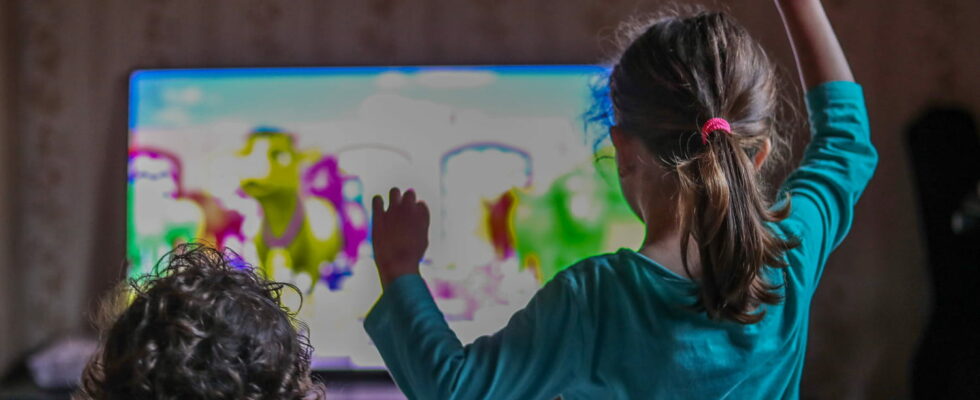We should not do anything with screens, especially not at a young age. Here is what science and official institutes say about the times to respect.
Can we leave our children in front of screens, and if so, for how long? This is the question that many parents ask themselves, whether it is to take a few minutes to breathe or to offer educational audiovisual programs to their offspring. There are several scientific studies on the subject, even if no health regulations give precise rules to young parents who have been left behind.
First, there is the question of age. According to the publication, “Caring for Our Children – National Health and Safety Performance Standards Guidelines for Early Care and Education Programs“, which received support from the American Academy of Pediatrics, it is best not to expose children under 2 years old to screens. Subsequently, between the ages of 2 and 5, the study recommends leaving children in front of screens for a maximum of one hour per day, only for educational purposes and in the presence of an adult who can accompany them in their viewing.

After this age, digital tools can be used for educational purposes or to do homework. These recommendations are also in line with the recommendations of the World Health Organization. Other experts, such as psychologist Serge Tisseron and his 3-6-9-12 rule, even recommend not leaving children under 3 years old in front of screens for a single minute.
Regarding duration, publications agree that excessive screen time can have a more or less significant impact on the development of children’s brains and, in the youngest, on cognitive abilities: the ministerial mission to combat drugs and addictive behavior assures that “children overexposed to screens are more at risk of suffering from language delay than others.”
It should be noted, however, that studies, including those from the highly regarded journal Jama Pediatrics, published in March 2020, agree that watching programs with educational value, with parental interaction and support, can help develop language at a young age. In January 2023, the same journal noted that children’s exposure to screens for an average of two hours per day could have an impact on attention and concentration skills.
No more than an hour at the beginning, then up to two hours maximum per day. But in reality, do parents follow the recommendations? Overall yes, according to a study published by Santé publique France on April 12, 2023, it appears that 2-year-old children spend, on average, 56 minutes per day in front of screens, 1 hour 20 minutes at 3 and a half years old and 1 hour 34 minutes at 5 and a half years old. For its part, a study Ipsos Junior Connect 2022 notes that children under 6 years spend, on average, 6 hours per week on the Internet (9 hours per week for 7-12 year olds, almost 18 hours per week for 13 year olds and over). As with everything, the important thing is therefore moderation and support for children in their digital use.
